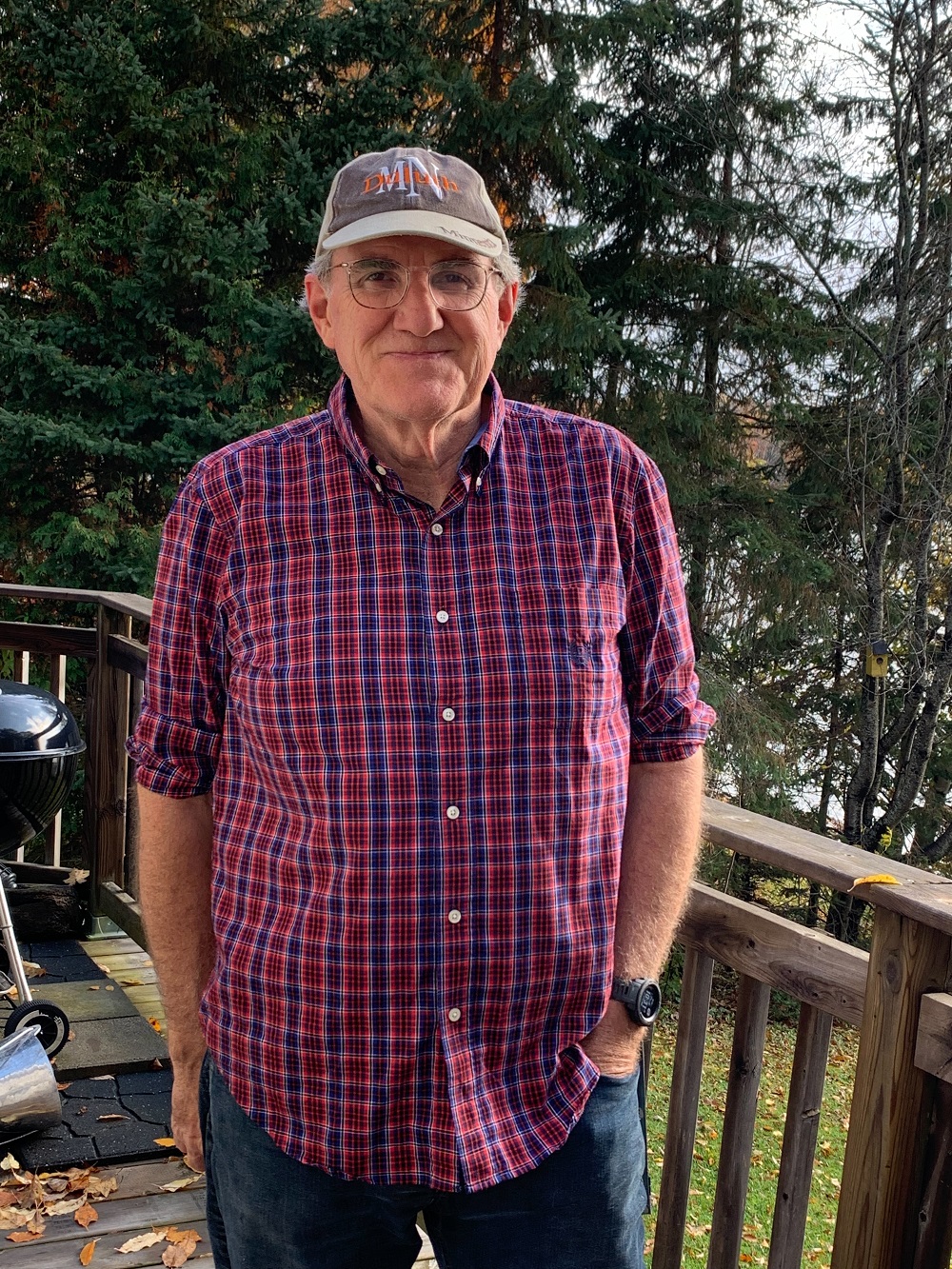Dorset cottager Peter Willmott and other neighbours of short-term rentals (STR) in the region will be watching County council Oct. 26 as talk of regulations return.
CAO Mike Rutter told The Highlander it is staff and consultant, J.R. Richards and Associates’, plan to have a final report on next Wednesday’s council agenda.
Willmott said there are seven short-term rentals on his road of 12 properties, including one next door impacting his quality of life.
He had planned to retire to Algonquin Highlands but has limited his stays in Dorset with the arrival of a next door, commercial short-term rental that can accept 10-12 guests. He said they are dealing with cars in a shared driveway, noise, lack of knowledge about fire bans and water safety, and a general dearth of cottage etiquette. He added an essentially transient population is coming for a weekend or week and not contributing to the fabric of the community.
“We have modified our cottage usage from Victoria Day until Labour Day to avoid all these hassles,” Willmott said.
The cottager, who went to college for urban planning and worked in the real estate industry for 40 years, is also worried about the impact of short-term rentals on the Highlands housing market. “It is driving up prices, which limits opportunities for local people living and working in the community, to find housing.”
Lake of Bays bylaw two years in the making
To date, he is happy the County is considering regulating the industry but thinks designating certain areas for short-term rentals, via zoning bylaws and official plans, is important. He thinks there has to be a clear definition of what a short-term rental is. He can live with a person leasing three to four weeks a year but if full-time, said they should be treated like hotels and motels, and be taxed accordingly.
“If I put a hotdog cart at the end of my driveway and started selling hotdogs, the municipality would come right away and say ‘you’re not allowed to do that commercially’ and shut me down. Meanwhile, my neighbour is running a commercial short-term rental with no regard to that,” he said.
“While the County has stepped in and started this process, there’s fine tuning to do.”
Work to date
During an Aug. 10 council meeting, the consultants recommended a phased approach to regulating, beginning with registration. They said it would provide a snapshot of the situation in the County and municipal enhancement required to implement a bylaw. They added between registering and licensing, the County and its municipalities would have time to review capacities and update applicable municipal bylaws.
The consultants looked into what a number of towns and cities are doing, including Bracebridge, Trent Lakes, Lambton Shores and Fort Erie. They also talked to Airbnb, the Haliburton Kawartha Lakes Housing Corporation, Environment Haliburton! and representatives of the local cottage rental and maintenance industry, as well as economic development and tourism. About 1,500 people responded to a survey.
Most councillors expressed interest in a phased approach, beginning with registration then licensing. Coun. Brent Devolin said he thought Lake of Bays, “has done a wonderful job. I’m ready to copy and paste what they have and tweak it so it’s relevant to our area.”
Lake of Bays regulates STRs through a bylaw, and they’re permitted in various zones identified in the zoning bylaw. The township issues three classes of STR license, based on the number of STRs operated by the same owner, total number of nights rented per year, minimum number of consecutive nights of stay, and maximum number of occupants per STR.
Licensing fees there range from $250 to $750. Occupancy allows for two people per sleeping area and one parking space per guest room.
County council discussed two people per bedroom, to ensure septic capacity. They also leaned towards one parking space per bedroom with a parking management plan.
With accessory and dwelling units, such as people renting out bunkies and garage lofts, council felt they needed more time to investigate.
When it comes to enforcement, council would like STR owners to designate someone to be on call 24/7 for issues. They so far like the idea of demerit points and fines.
To date, councillors have said “no” to shortterm rentals having to be zoned. Council said they’d license all STRs and not grandfather any.
Lake of Bays model
Lake of Bays director of building and bylaw services, Stephen Watson, said their bylaw has been two years in the making.
They hired a third-party contractor, Granicus, to help them locate advertisements for STRs in their area. He said there are more than 200. Granicus then sent letters to owners about registration and licensing.
Lake of Bays also hired a short-term rental co-ordinator. Watson said that person deals with licensing applications, answers general questions and does site visits, so bylaw staff do not have to.
When it comes to complaints, he said people can email, text or phone Granicus 24 hours a day. The company gets in touch with the person deemed contactable for the property under licensing.
“If it’s a noise complaint, Granicus will contact that person in one hour and say ‘we received a noise complaint at your short-term rental at this address. Can you please address it’.” He said the issue is usually resolved at that point with no need for bylaw.
The Dwight-based director said the cost so far is reasonable, with Granicus charging just over $15,000 annually, including a 24-hour hotline, and the co-ordinator costs under $100,000.
Watson added he’s more than happy to share Lake of Bays’ formula with the County of Haliburton.
“If they want, they can call us. We don’t like to advertise our oops (mistake). We can tell them where we think we could have done better.” He said they’ve had seven municipalities reach out to them to date.
“I think we’ve done a pretty good job.”





